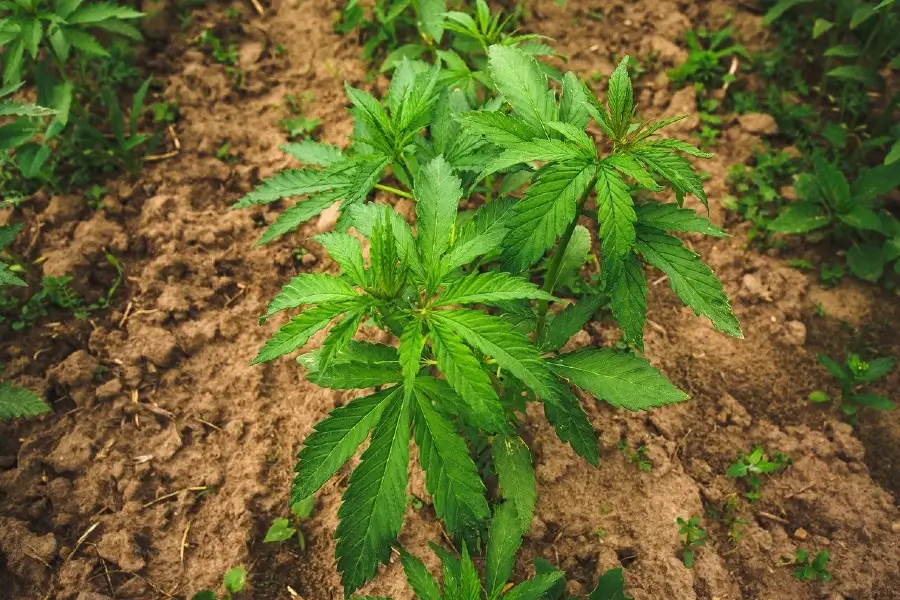State officials are unable to effectively manage the cannabis industry because it is growing and expanding at a rate that is faster than their ability to do so. Across the United States, retail outlets, markets, and convenience stores are increasingly stocking cannabinoid products that are derived from hemp and contain high amounts of THC. These goods are becoming more accessible. The quantity of these things sold to young people is growing alarmingly. Because of the widespread availability of these products, there has been a heated discussion in the capitals of state governments across the United States about how to address the threats they bring to public health, safety, and access for adolescents and young adults.
Intoxicating cannabinoid products derived from hemp are frequently marketed as “hemp-infused” with cannabidiol (CBD) or tetrahydrocannabinol (THC). These products can be found in various products, including beverages, drink concentrates (which are intended to be added to water or various alcoholic beverages like vodka), candies, sweets, and cookies. These items, made with children in mind, typically include a variety of notable traits, including colorful packaging, fun flavors, and names that are easy to remember. It is possible that comments such as “Try this, it’s just like candy!” will be used to market these products intended for young people.
Furthermore, they typically contain a mixture of multiple different THC isomers, some of which are more powerful than others when supplied in the exact dosage.
Furthermore, they typically contain a mixture of multiple different THC isomers, some of which are more powerful than others when supplied in the exact dosage. This is a common feature of these products. As a consequence, a phenomenon often known as the “skunk effect” has come into being. In addition to being unpleasant and intoxicating, this effect can last for several hours and is characterized by a high that is both unpleasant and intoxicating. Young people are more likely to experience these kinds of outcomes than adults, and they can result in an increased probability of being dependent on the substance or addicted to it. However, adults are more likely to encounter these kinds of consequences.
The consumption of these psychoactive cannabis product types that are derived from hemp is not safe, even though they are experiencing widespread popularity. It is a well-known truth that they are the source of a considerable amount of calls that are made to poison control centers located throughout the United States. The occurrence of these calls is a consequence of unfavorable medical effects, which include seizures that are out of control, confusion, hallucinations, dizziness, tremors, and vomiting. The Delta-8 THC that is commonly included in these products is primarily responsible for the adverse effects that are experienced. This particular kind of THC is not protected by the definition of hemp that was included in the Farm Bill of 2018. As a result, it is not permitted to be legally sold in markets subject to specific regulations.
These reports were obtained after the FDA received reports of pet owners offering cannabinoids to their pets.
Not only do these products have an effect that is similar to that of alcohol, but they also have the potential to cause significant harm to pets if they consume them. The Food and Drug Administration (FDA) has received complaints of adverse medical incidences that have happened as a result of the practice of pet owners giving cannabinoids generated from hemp to their dogs and cats. These reports were obtained after the FDA received reports of pet owners offering cannabinoids to their pets. There are reports of pets that have died as a consequence of consuming cannabinoids that are derived from hemp. There have been such cases.
Beginning with the state of Michigan in 2021, an increasing number of states are deciding to demand that products derived from hemp that include cannabinoids and are used for intoxication become consistent with their legislation regarding marijuana intended for recreational use. An attempt is being made to find solutions to the problems that have been brought up, and this is being done. As a result of this technique, the legal environment becomes inconsistent and confusing for all parties concerned, including consumers, businesses, and law enforcement. This is the case because this method results in a legal environment.
Seek the counsel of an expert legal practitioner regarding the particulars of your circumstance.
Intoxicating cannabinoid-based products that are derived from hemp are still being monitored by Vicente Sederberg LLP, and the firm continues to provide updates on the legal landscape around these goods. The sole purpose of these newsletters is to facilitate the dissemination of information; in no way do they constitute legal or tax advice. You should seek the counsel of an expert legal practitioner regarding the particulars of your circumstance, as I strongly encourage you to do so.
